 Petzlover
PetzloverDogo Cubano is originated from Cuba but Pungsan Dog is originated from North Korea. Both Dogo Cubano and Pungsan Dog are having almost same height. Dogo Cubano may weigh 22 kg / 49 pounds more than Pungsan Dog. Dogo Cubano may live 5 years less than Pungsan Dog. Dogo Cubano may have more litter size than Pungsan Dog. Dogo Cubano requires Low Maintenance. But Pungsan Dog requires Moderate Maintenance
The Cuban Mastiff which came from Cuba, was developed from breeds of Mastiffs, Bulldogs and cattle dogs, with the breed being thought to be extinct since the end of the 19th century.
The Dogo Cubano had a number of roles to fulfill in its day and they were used for guarding stock, for dog fighting and for chasing runaway slaves. After the abolishment of slavery, the large dog had no real role and it died out.
Known also as the Cuban Mastiff or Mastin de Cuba, there isn’t much accuracy as to its origins, with the most common story for their origin being that they are descendants of the Molossus.
The dogs were later introduced into Western Europe, becoming fairly common in England and Spain. The dog was also was also mentioned in the works of canine authors Stonehenge and George Wood.
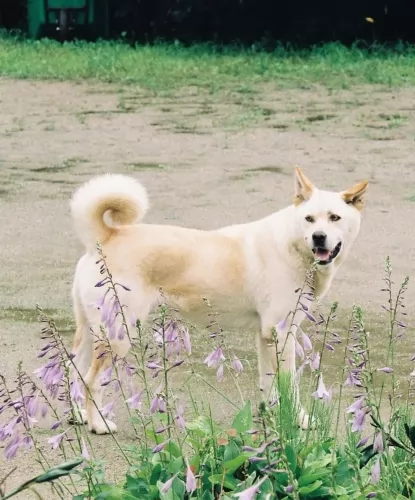 It is a hunting dog and considered to be a National Treasure of Korea. It was during the Japanese occupation of Korea that the dog’s thick coat was sought after for use in fur coats for the Japanese military.
It is a hunting dog and considered to be a National Treasure of Korea. It was during the Japanese occupation of Korea that the dog’s thick coat was sought after for use in fur coats for the Japanese military.
The population numbers plummeted dramatically, with the Korean War reducing the numbers even further. The North Korean government assisted with re-establishing them.
Today, the Pungsan isn’t recognized by the Federation Cynological International (FCI) and also remains unrecognized by any major kennel clubs.
The Dogo Cubano was generally similar to other Mastiffs and stood at rough 48 – 55cm in height and weighing in the region of 45kg.
He was a large dog, powerfully built, muscular and strong. Images of the dog show that it had strong, straight legs with a long tapering tail and medium-sized floppy ears that were sometimes cropped upwards and close to the head.
The dog breed came in a variety of colors such as brown, tan, fawn and brindle. The muzzle was broad and short and black. The dog had pronounced jowls with its face being fairly wrinkly.
This large dog was known for being a courageous, independent and aggressive dog. He became attached to his owner, showing protective characteristics .In those days the dog would have received simple training and certainly if such a large dog still existed today, it would have to receive training and socialization as well.
The Dogo Cubano was an intelligent dog and easily trainable, requiring an owner with a firm hand. Being an aggressive breed, the dog possibly wouldn’t have been the best companion for children. He also wouldn’t have got on too well with pets in the home as he was trained to be a fighter in his day. Independent and strong-willed, the dog would not have suited a novice dog owner.
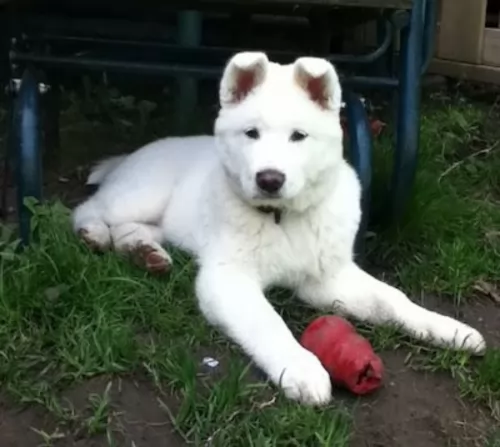 The Pungsan dog is a large dog – a kind of spitz-type dog which stands between 55 and 60cm in height and weighs between 18-24 kg.
The Pungsan dog is a large dog – a kind of spitz-type dog which stands between 55 and 60cm in height and weighs between 18-24 kg.
The dog has a thick whitish coat that even allows them to sleep in the snow. They have a muscular build with a deep chest. The legs are straight and strong, with the typical Spitz-type triangular head with the almond-shaped eyes and erect ears. The tail is high-set, curling over the back. After mating, within 60 – 70 days they can produce 2 to 4 puppies.
It it thought that the Pungsan’s intelligence is due to wolf DNA but there is a question mark over this. They are intelligent dogs though.
These dogs are always loyal and protective of their owners, forming strong bonds with them. They are strong-willed and independent and will require training and socialization if you want them to be obedient, well mannered dogs.
They’re intelligent so won’t have problems learning. When properly trained and socialized, they can be good playmates for children. He is also able to get along well with other animals in the house.
They’re aloof with strangers and have strong territorial instincts, but this just goes towards making them excellent watchdogs.
The Dogo Cubano was bred to be a guard dog as well as for dog fighting, but this large dog, with training and socialization, no doubt became a loyal and devoted family pet.
It was actually a social dog, being aggressive towards other dogs. He would be described as a dog better suited to a home with older children.
He was protective with his human family but not very active, being too big to be leaping around like other dog breeds. It is a pity that this large dog has disappeared as he had some good qualities.
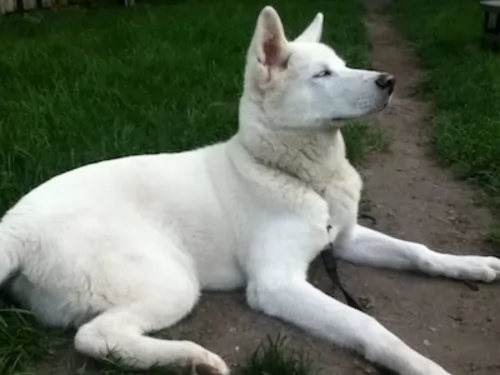 The Pungsan is a wonderful dog if you’re looking for an affectionate, loyal pet.
The Pungsan is a wonderful dog if you’re looking for an affectionate, loyal pet.
These dogs thrive on having an owner that is energetic and a strong leader. It likes to become involved in all the activities the family is involved in, loving to join them on hikes and camping trips. Its a dog that is also protective and territorial and makes a good watchdog too.
With proper training and socialization he gets on well with children and other pets in the home, making him a welcome canine family member for any busy household.
The Dogo Cubano was a generally healthy breed, but just like with most other dog breeds, they were also prone to some of the more common dog problems. The chances of him getting sick were slim though.
When the dog first originated, there were unlikely to have been health clearance certificates, but today, you’d want health clearances from the Orthopedic Foundation for Animals.
The reason for this is that hip dysplasia is a heritable condition, seen more often in large dogs, where the thigh bone doesn’t fit into the hip joint properly. The dog suffers with pain and discomfort and the condition can lead to lameness with the dog.
Gastric Torsion or Bloat is a life threatening condition that affects large dogs like the Dogo Cubano and those with deep chests. The stomach is distended with gas and it can twist.
The gas can’t escape and blood flow is hindered. The dog vomits, is lethargic and weak, and immediate veterinary help will be required.
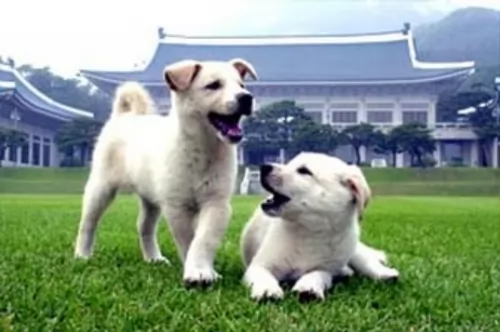 The Pungsan is a healthy breed prone to very few health issues, yet there will always be those common health issues that plague dogs like these. One of these is hip dysplasia, while others are obesity, bloat and cancer.
The Pungsan is a healthy breed prone to very few health issues, yet there will always be those common health issues that plague dogs like these. One of these is hip dysplasia, while others are obesity, bloat and cancer.
It can be very sad when your vet tells you that your dog has hip dysplasia. Fortunately with modern veterinary medicine, a dog can be kept happy with this ailment.
The hip joint doesn’t develop properly and painful wear and tear with arthritis makes it very difficult for the dog to be mobile. It’s a genetic condition but diet and environmental factors play a huge part too. Get your pet to the vet to ensure he is pain free.
Seizures in a dog can be caused usually because of trauma, tumor or infection. Seizures can start from as young as 6 months of age.Some seizures can last for a long time and are considered an emergency, requiring immediate veterinary help.Your veterinarian will want a complete history and perform a neurological exam.
The Dogo Cubano was a large dog, so if he did become used to living in the city, he would have adapted better to life in the country.
He wasn’t a dog requiring too much exercise but he would have needed to go for walks. They were used as guard dogs long ago, and if he had been in existence today, you wouldn’t have been able to include him in your jogging and cycling as he was a dog that could easily overheat.
Not all dogs require the same amount of food. Long ago the Dogo Cubano wouldn’t have had the same variety of dog foods available today. Maybe the dog in those days was fed the same kind of food that his owner ate.
Today, if these dogs were still around, they would require the best quality ‘large dog breed’ kibble.
The better the dog food, the more nourishing it is and the healthier the dog is. The Dog Cubano would likely have been a dog that drooled, leaving quite a bit of backwash in the water bowl, so it would have been important to wash out the drinking bowl and to regularly replace it with cool, fresh water.
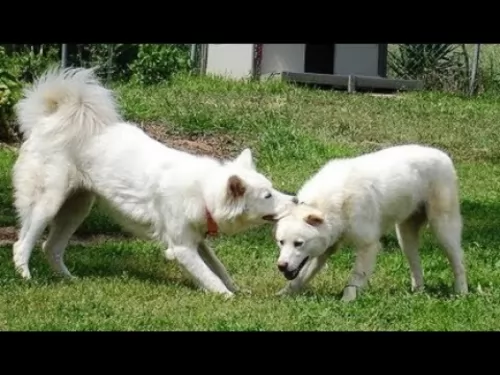 With his dense coat, this dog will require a brush twice a week to keep the fur free from matting and from loose hair. He is after all a fairly heavy shedder and will require this regular brushing to remove the dead hair and maintain the luster and sheen of the coat.
With his dense coat, this dog will require a brush twice a week to keep the fur free from matting and from loose hair. He is after all a fairly heavy shedder and will require this regular brushing to remove the dead hair and maintain the luster and sheen of the coat.
This is a strong, athletic dog and he is mentally sharp as well. He will require vigorous physical- and mental activity each day. He isn’t the kind of dog to lie around for long periods of time as this leads to frustration and destructive behavior and then the owner should be blamed.
Take him on walks or long hikes – he’ll love that – and play ball- and rope games with him. He will be quite game for swimming as well.
Your Pungsan dog can get to 14 years of age with good food. While you do get some excellent commercially manufactured dog foods, you want to be sure your pet gets some nutritious home-made food too.
Make sure that the kibble is the high quality ones with lots of vitamins and minerals. Add in some home-made food twice a week. Boiled chicken, brown rice or pasta and spinach, sweet potatoes and carrots are a healthy choice for your pet. Your dog will do well on plain, simple, nutritious, tasty food like this. Chop this food up and add it into the dry kibble a couple of times a week.
Some raw meat added in from time to time will help his skin and coat remain healthy. Never leave him without a constant source of fresh, cool water.